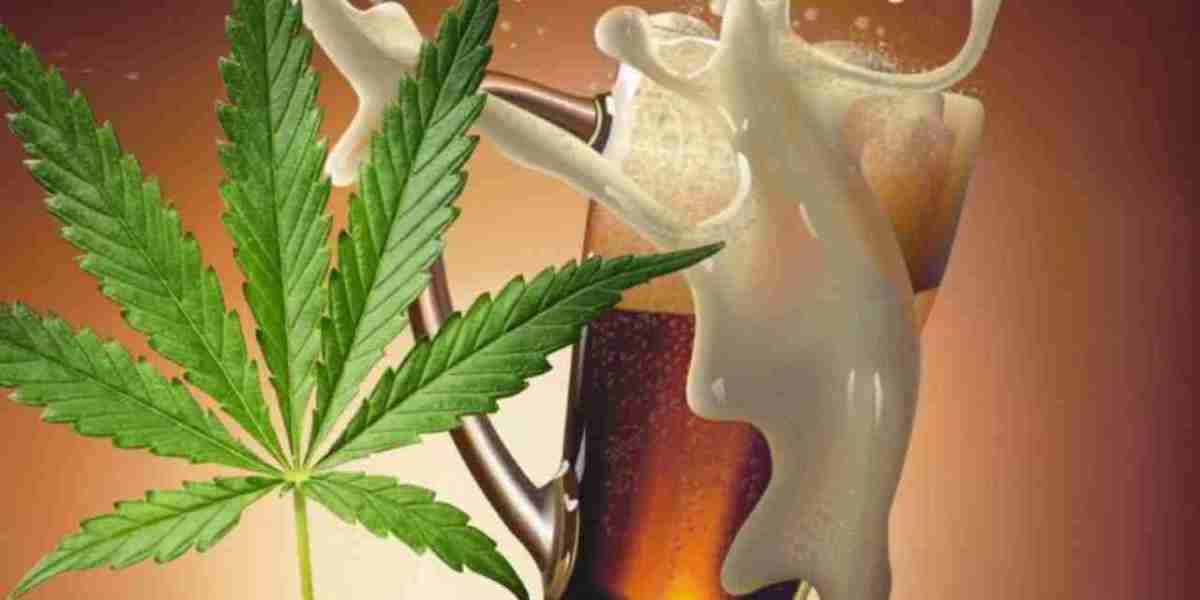The global CBD beverages market is witnessing rapid expansion, driven by increasing consumer demand for functional wellness products. However, the sector faces significant regulatory challenges due to varying legal frameworks governing cannabidiol (CBD) in different countries. Understanding the legal requirements and compliance standards is essential for businesses seeking to navigate the complexities of the market and avoid potential legal pitfalls. This article provides a comprehensive overview of the key regulatory aspects that influence the production, distribution, and marketing of CBD beverages worldwide.
1. Regulatory Landscape in North America
United States
The regulatory environment for CBD-infused beverages in the United States is complicated due to the federal vs. state divide. At the federal level, the 2018 Farm Bill legalized hemp-derived CBD products, provided they contain less than 0.3% THC. However, CBD is still not fully approved by the U.S. Food and Drug Administration (FDA) for inclusion in food and beverages, creating regulatory uncertainty.
The FDA has stated that it is actively working on establishing clear guidelines for CBD in food products, but in the meantime, state regulations take precedence. Some states, such as California and Colorado, have established their own rules for CBD beverages, while others, like Idaho, maintain stricter regulations or outright bans on CBD products. This patchwork of state laws presents challenges for businesses looking to distribute CBD beverages nationally.
Canada
Canada has a more unified regulatory framework, as CBD is legal for both medical and recreational use under the Cannabis Act. However, the Cannabis Act places strict controls on the production, packaging, and sale of CBD-infused products, including beverages. CBD beverages are treated as cannabis products and are subject to rigorous testing and labeling requirements to ensure consumer safety and compliance.
In Canada, only licensed producers are allowed to manufacture and sell CBD beverages, and these products must be sold through provincially regulated outlets. This regulatory structure helps ensure that only compliant products reach consumers, making it easier for businesses to operate within a clear and well-regulated environment.
2. European Union (EU) Regulations
The regulatory environment in the European Union (EU) is evolving, with individual member states having some leeway in implementing their own regulations around CBD. However, there are overarching guidelines provided by the European Commission and the European Food Safety Authority (EFSA).
In 2019, the EFSA classified CBD as a novel food, meaning that any CBD-based food product, including beverages, must undergo a safety assessment before entering the market. This classification requires producers to submit a novel food application to gain approval, which can be a lengthy and costly process. Many EU countries are still waiting for further guidance on how to regulate CBD-infused products in food and drinks, creating a level of uncertainty for businesses entering the European market.
Countries like Switzerland and the United Kingdom have clearer regulations surrounding CBD, with Switzerland permitting CBD products that contain up to 1% THC and the UK allowing CBD products with no more than 0.2% THC. These regulations provide businesses with a more predictable environment for CBD beverages, though they are still subject to evolving legal and regulatory frameworks.
3. Asia-Pacific Region Regulations
The Asia-Pacific (APAC) region presents a more restrictive regulatory environment for CBD beverages, with many countries maintaining strict controls on cannabis-related products.
Australia
In Australia, CBD is legal but only under strict medical supervision. While CBD oils and tinctures are approved for medical use, the use of CBD in beverages is still highly regulated. To market CBD products in Australia, companies must ensure that their products meet the Therapeutic Goods Administration (TGA) guidelines for therapeutic goods, and any new product must be registered and approved by the TGA before distribution.
Japan
Japan has one of the strictest cannabis-related regulations globally. While CBD products derived from hemp with less than 0.3% THC are legal, CBD beverages are subject to significant restrictions. Japan has stringent labeling requirements, and any product containing THC — even trace amounts — is illegal. Businesses looking to market CBD beverages in Japan must navigate these regulations carefully to avoid legal issues.
China
China, where cannabis laws are stringent, has not yet created clear regulatory pathways for CBD in food products, including beverages. While the country has been a major supplier of hemp-derived CBD to other markets, the use of CBD in consumer products is heavily restricted. This makes it difficult for international companies to introduce CBD beverages into the Chinese market.
4. Latin America and Middle East Regulations
Latin America
In Latin America, countries like Mexico and Brazil are starting to open up to CBD, but there are still significant regulatory hurdles. Mexico legalized medical cannabis, including CBD, but the regulatory framework for CBD beverages remains unclear. In Brazil, CBD products are approved for medical use but require prescription, limiting the availability of CBD beverages for general consumers.
As the demand for wellness products grows in the region, regulators are expected to introduce more comprehensive frameworks for CBD-infused products, opening the door to new market opportunities.
Middle East
The Middle East has some of the strictest cannabis-related laws, with CBD products, including beverages, generally banned in most countries. However, some countries like the United Arab Emirates (UAE) have made exceptions for CBD oils used for medicinal purposes. The regulatory stance on CBD beverages is largely prohibitive in this region, making it a difficult market for CBD beverage manufacturers.
5. Global Challenges and Opportunities
Despite the complexities of regulatory frameworks, businesses in the CBD beverages sector face numerous opportunities and challenges. Some key considerations include:
Global Harmonization of Regulations: As the demand for CBD beverages continues to rise, there is growing pressure for governments to standardize regulations, making it easier for businesses to operate across borders.
Compliance Costs: Navigating the regulatory landscape can be expensive, with companies needing to invest in compliance testing, labeling, and safety certifications to ensure they meet local requirements.
Evolving Legal Status: The legal status of CBD is in flux in many regions, and businesses must stay up-to-date with changing laws to avoid risks and capitalize on new market opportunities.
Conclusion
Navigating the regulatory environment for CBD beverages is complex, with each region presenting unique challenges. Companies looking to enter the market must be prepared to comply with evolving legal frameworks, including novel food applications, testing and labeling requirements, and licensing. While some regions, such as Canada and parts of Europe, offer more favorable regulatory environments, others, such as parts of Asia and the Middle East, pose significant barriers to entry.
Understanding the regulatory landscape is critical for businesses aiming to succeed in the global CBD beverage market. By staying informed on legal developments and ensuring strict compliance with regulations, companies can position themselves for long-term success in this rapidly growing sector.




